Six Nations 2018: What is the significance of a Grand Slam?
- Published
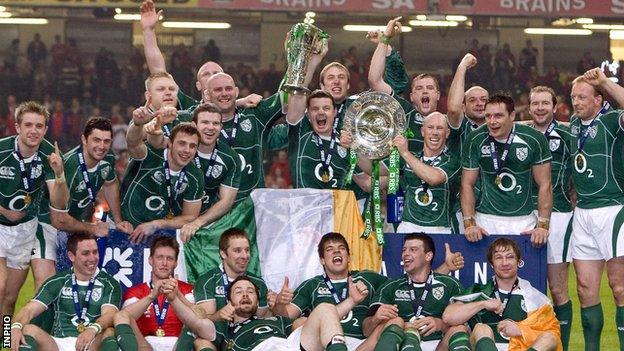
Ireland celebrate their 2009 Grand Slam triumph after defeating Wales in Cardiff
Is it simply the truest reflection of one team's greatness in the history books? Or could it have a more tangible legacy?
As they prepare for their final challenge against England at Twickenham, Ireland are on the brink of what would be just their third Grand Slam since the Home Nations championship began in 1883.
But Joe Schmidt's team are also seeking to inspire the next generation of young rugby stars in the same way the 2009 win, external has so clearly influenced them.
Ireland captain Rory Best and full-back Rob Kearney are the only members of that 2009 side who are part of the current panel, but their achievements nine years ago still resonate within the team today.
Johnny Sexton had to wait until November of that year to make his Test debut, but the Leinster fly-half was already providing stiff competition for Ronan O'Gara, whose epic drop-goal against Wales he so dramatically emulated in the win at the Stade de France in February.
Grand Slam legacy
Perhaps the most significant achievement of the likes of O'Gara, Brian O'Driscoll and Paul O'Connell are the players now seeking to match them.
Seven of the 23-man squad on duty against Scotland last Saturday were between the ages of 11 and 14 when Ireland were last crowned Grand Slam champions - that's quite a legacy.
"I was in second year in school," said Garry Ringrose, who turned 14 just before the start of the 2009 championship.
"I think I just watched it with my family at the time so it would be amazing to be part of something like that but there's no point getting too distracted."
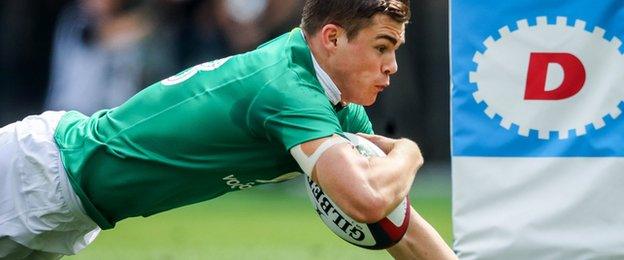
Ireland centre Garry Ringrose goes over for a try against Japan in last summer's tour
Ringrose, 23, speaks with a maturity and a reserve that belies a man who was parachuted into the Ireland midfield because of injuries to Robbie Henshaw and Chris Farrell and must now prepare for his first visit to Twickenham.
"I think it's a pretty big challenge," admitted the centre.
"I haven't played there before so it would be pretty special to go to what is an incredible stadium with 80-odd thousand people.
"I'm well aware that I'm lucky, the fact there were injuries that have allowed me to get this opportunity."
'This doesn't happen very often'
In his first appearance of the championship, Ringrose was one of the stand-out performers against Scotland; he was the leading tackler and ball carrier among the Ireland backs, he beat five defenders for a total of 92 metres, he won a turnover and created Jacob Stockdale's second try.
In the wake of such a performance from the third player to be deployed at outside centre for Ireland in this year's tournament, Schmidt believes his team now has stars of equal stature to the 2009 side.
"By pure evidence of performance and results, I think you'd have to say so," said the Ireland head coach.
"Three [titles] in five years, there are some very consistent personnel during that period…and then there's this young crew.
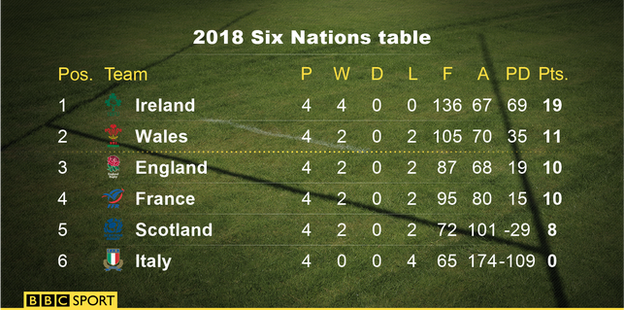
"[Second row] James Ryan doesn't know what it's like to lose a Six Nations game.
"They need to understand that this doesn't happen very often.
"This is incredibly tough to do and the opportunity that exists next week is really precious."
'Us against them'
What stands between Ireland and their chance to join the Grand Slam winners of 1948 and 2009 is the side that has the greatest motivation to spoil their celebrations.
England's bid for a third consecutive title ended after defeats in Edinburgh and Paris but Eddie Jones and his players will be eager to avenge their final-round loss in Dublin last year, which denied them a clean sweep.
Ireland, who also prevented English Grand Slams in 2001 and 2011, are braced for a backlash.
"This is just us against them," admitted Schmidt.
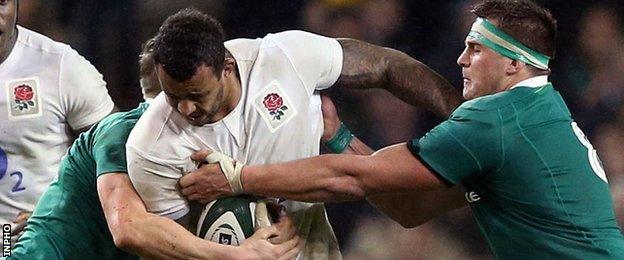
Garry Ringrose and CJ Stander tackle Courtney Lawes in Ireland's 13-9 win over England in Dublin a year ago
"I think there is a degree of certainty around that and it means you can focus yourself a bit more, they know we are coming and they are going to be ready for us.
"We've got to get over there and hit our A game right from the start, because there's going to be an extraordinary resolve among that English contingent after those two away losses."
Schmidt will know England also derailed lreland's only other Grand Slam opportunity of the Six Nations era when Martin Johnson famously led his side to a clean sweep before their 2003 World Cup success.
England, Schmidt has noted, are at their most dangerous when they have something to prove.
"They're wounded, but they're far from dead and buried," warned the New Zealander.
"They'll have a really resilient resolve to come back, bounce back and beat us."
- Published11 March 2018
- Published10 March 2018
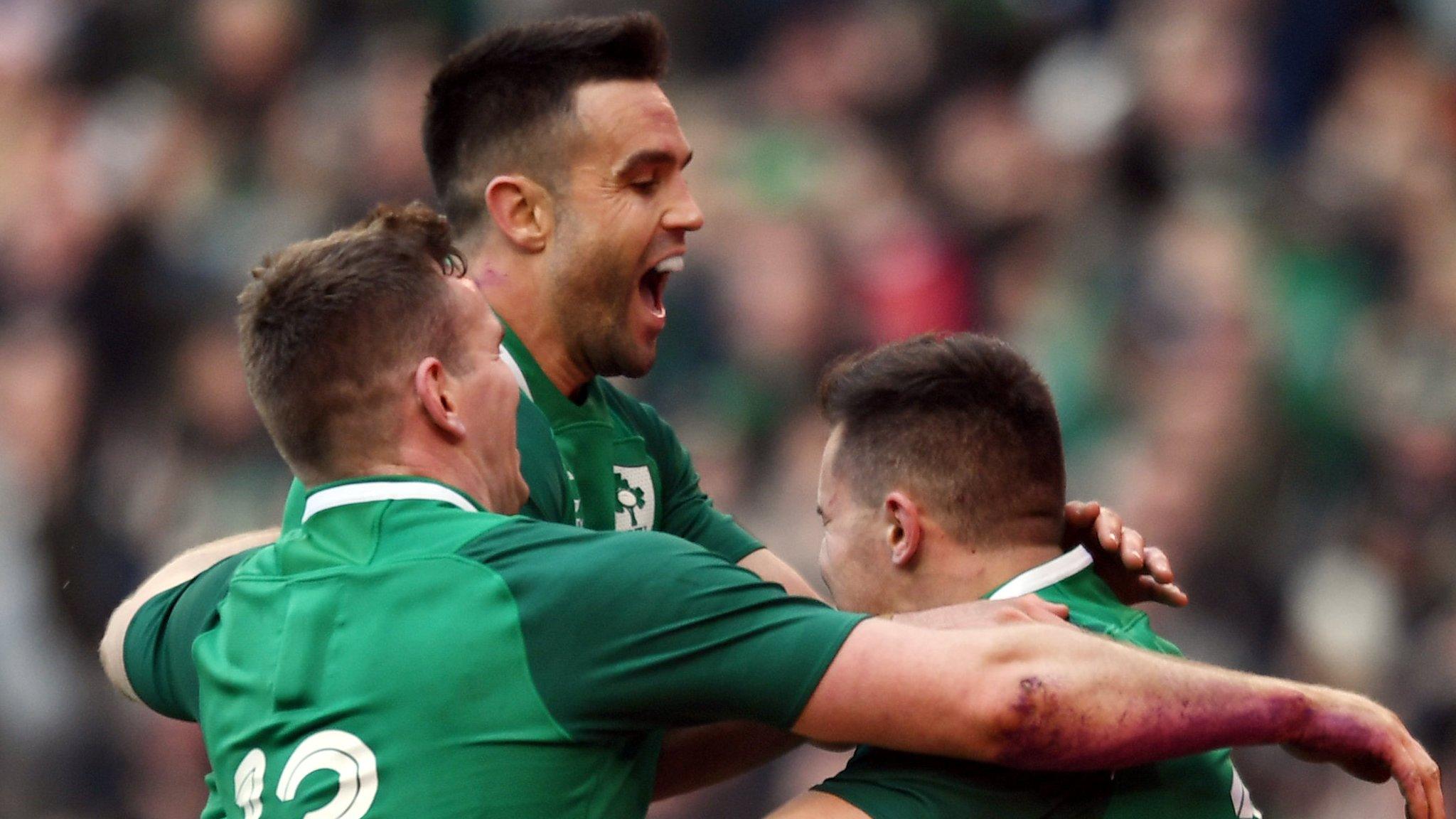
- Published10 March 2018
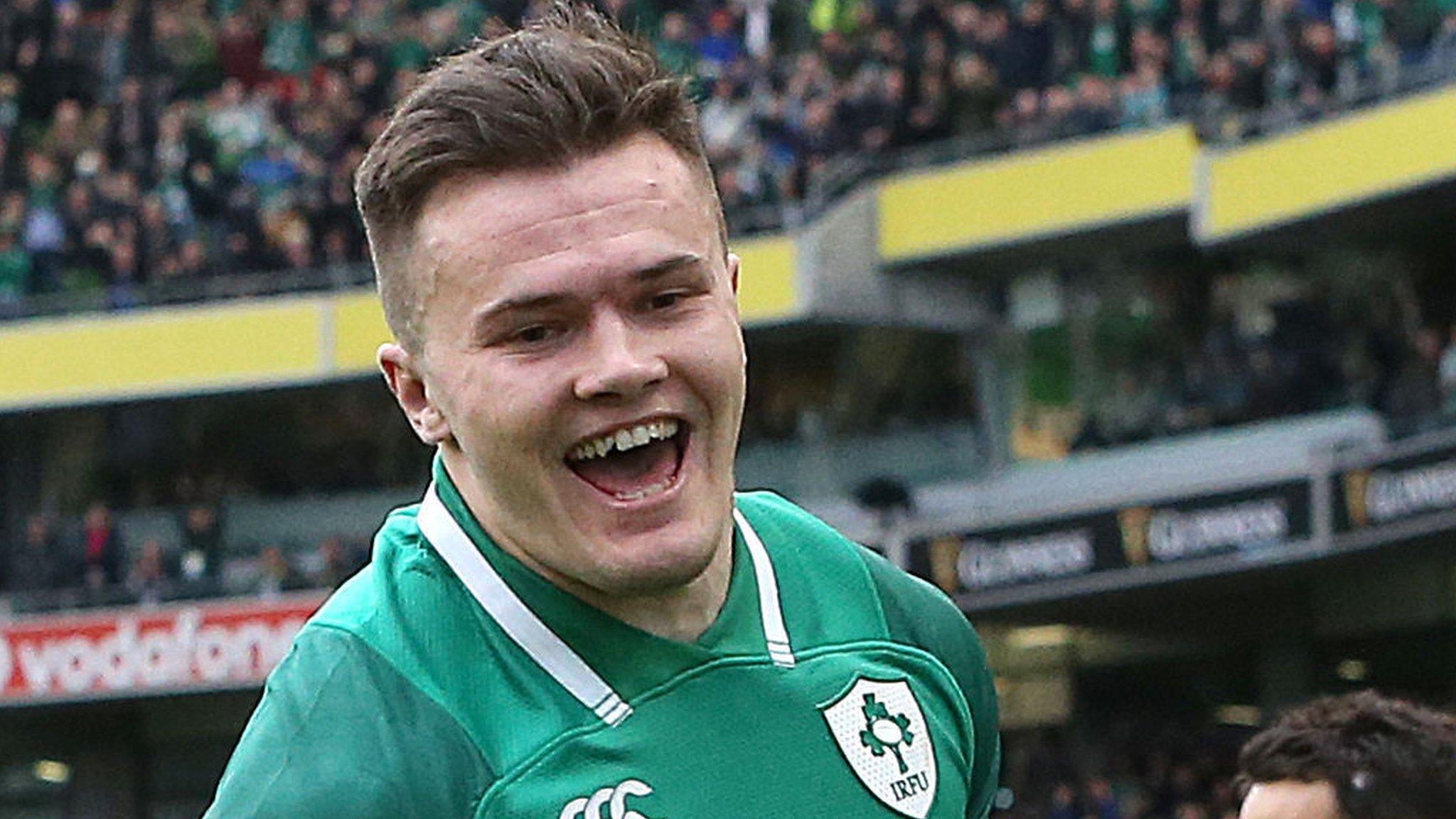
- Published10 March 2018
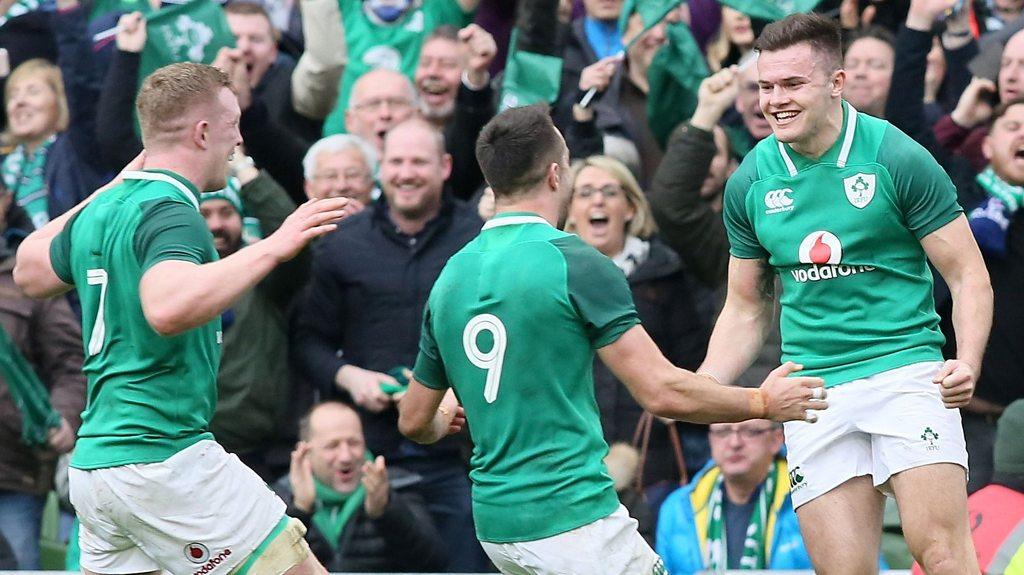
- Published24 February 2018
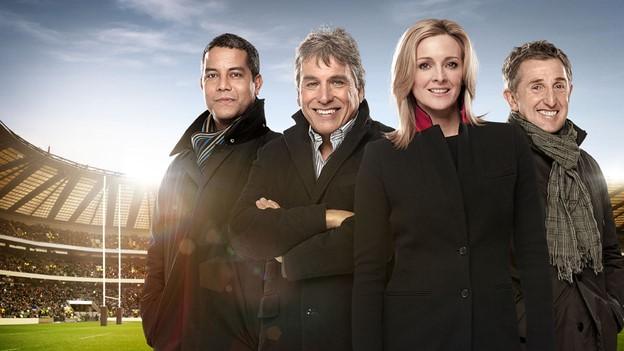
- Published15 February 2019
